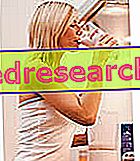
facilitates the passage of glucose from the blood to the cells and therefore has hypoglycemic action (lowers blood sugar)
facilitates the passage of amino acids from the blood to the cells
it has an anabolic function because it stimulates protein synthesis
facilitates the passage of fatty acids from the blood to the cells
stimulates the synthesis of fatty acids and inhibits lipolysis
Many of the diets born in recent years have set themselves the goal of controlling insulin secretion thanks to correct food combinations. A hyperproduction of this hormone resulting from the consumption of large quantities of carbohydrates can in fact lead, in the long run, to the development of diseases such as obesity and diabetes (to deepen the topic and find out why it is so important to keep blood sugar constant, I refer you to article: Blood glucose and weight loss).
All this alarm against insulin has also reached the ears of sportsmen, generating unnecessary worries in some cases. First of all, remember that it is not the insulin itself that is dangerous but the incorrect habits that amplify the effects of so-called "negative" ones.
So not only what we eat is important, but also what we do during the day. In particular, the body of a sportsman is able to better modulate the insulin action defending himself from possible negative effects. But let's get to the first fundamental point:
it is not true that insulin is fattening
or rather it does it only when the following conditions occur simultaneously:
- stocks of muscle and liver glycogen are saturated
-you take a surplus of carbohydrates (even complex ones) with the diet by not taking adequate amounts of other nutrients (fats and proteins)
- after this assumption sedentary activities take place which prevent the use of excess blood glucose.
If it is true that these conditions occur frequently in sedentary people who eat badly, it is also true that a sportsman is unlikely to find himself in all three situations simultaneously:
the action of insulin is useful for athletes
in particular at the end of physical activity to supply the body with carbohydrates spent during physical exercise. The post-workout meal must in fact provide the right intake of simple sugars in order to activate an insulin spike that restores glycogen stores.
Recall that for the same amount of oxygen consumed, carbohydrates have an energy yield higher than fat. Therefore the higher the glycogen supply, the better will be the performance of an athlete engaged in endurance races (marathon, gran fondo, etc.).
A separate discussion should be made for body building and power activities
During these activities the body consumes limited amounts of carbohydrates. It follows that a body builder can be more easily found in the three conditions described above.
However even athletes from these disciplines can benefit from insulin action. In fact, remember that insulin is the anabolic hormone par excellence and that, in addition to facilitating the entry of fats and carbohydrates into the cell, it also facilitates the entry of proteins.
This explains why, after training with weights, it is advisable to consume carbohydrates with a high glycemic index (for example a banana) together with whey proteins. This association causes an insulin spike that favors the entry of amino acids into muscle cells, where they will be used to repair damaged protein structures and promote anabolism.



